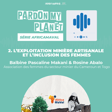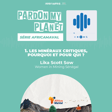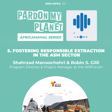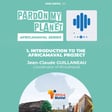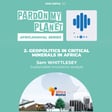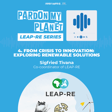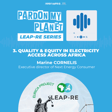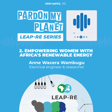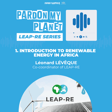
Développer la chaîne de valeur des minéraux en Afrique
Invitée : Marit Kitaw, économiste du secteur minier à la Commission Économique pour l’Afrique (CEA)
Le podcast Pardon My Planet présente sa première série en français, consacrée aux partenariats entre l’Afrique et l’Europe autour des matières premières critiques. À travers trois épisodes, cette série explore les enjeux de souveraineté, d’inclusion, et de développement durable dans le secteur minier africain.
Pourquoi l’Afrique, malgré ses ressources naturelles immenses, continue-t-elle à exporter la majorité de ses matières premières à l’état brut ? Cet épisode explore les freins structurels et les opportunités pour localiser davantage de valeur ajoutée, encourager la transformation locale et bâtir une industrie minière africaine plus intégrée, plus durable et mieux adaptée à la diversité du continent.
Retrouvez plus d'informations sur lgi.earth/fr/podcast
